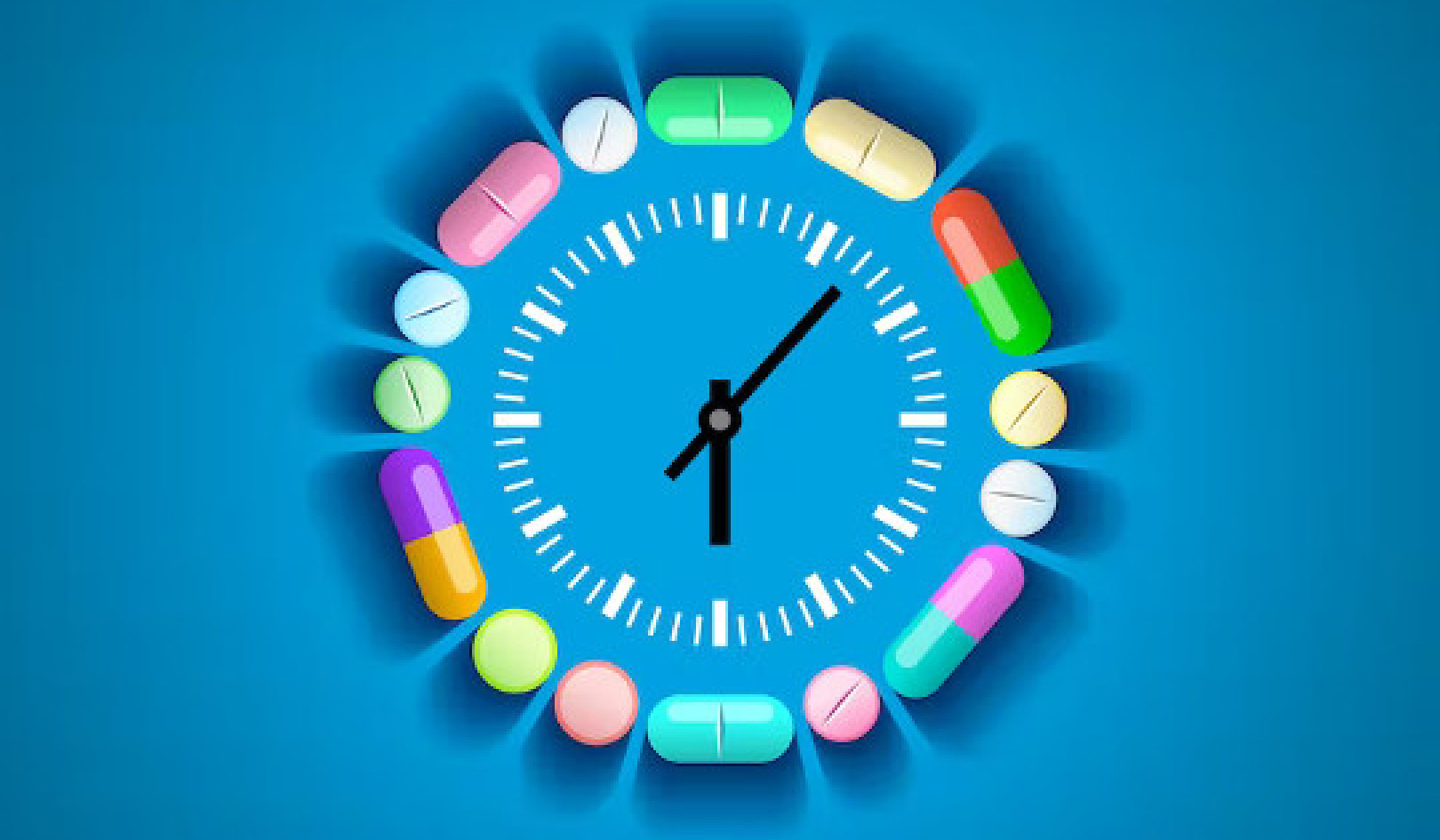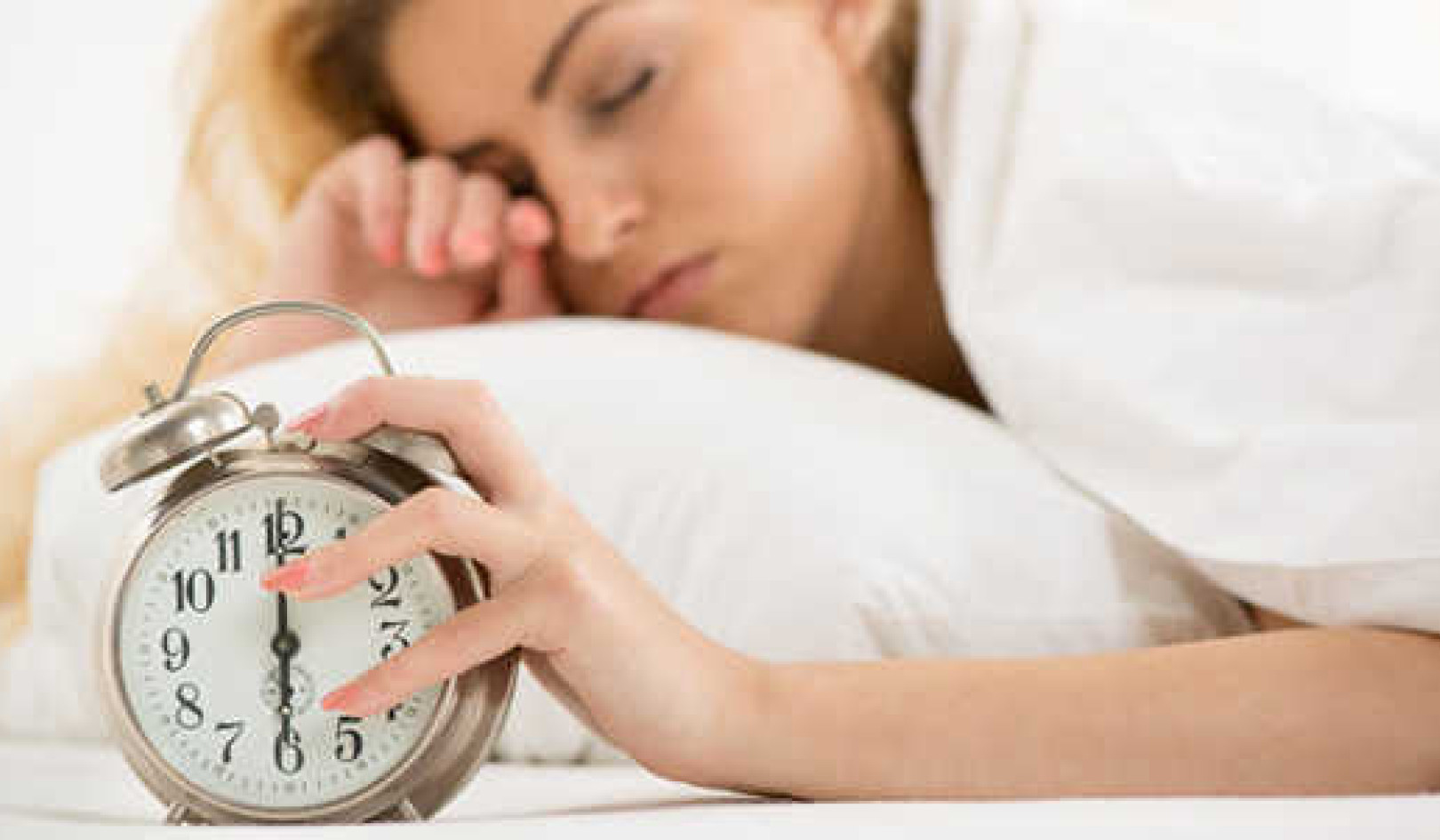
Image by Ferenc Keresi
On a typical day in America, 125 million people wake up feeling exhausted. They reach to shut off the alarm clock with bleary eyes, vowing to get more sleep. But for 50 percent of the nation's population, getting a good night's sleep is as difficult as flying to the moon.
"I have people coming into my office every day complaining of insomnia at night and fatigue during the day," says Dr. Harold Bloomfield, Yale-trained physician and the N.Y. Times best-selling author of Healing Anxiety Naturally. "This is an epidemic and an epidemic on the rise."
Indeed, insomnia and fatigue are now considered America's top health problems. Researchers have identified lack of sleep as a cause of serious disorders ranging from diabetes to high stress levels. The results show that it is taking a huge toll on the quality of life -- and the health -- of millions.
Here are some research facts that might make you head for the bed: sleep deprivation is credited with 60 percent of road accidents -- and drivers who stayed awake over 17 hours suffered impaired coordination, reaction time, and judgment worse than drivers who were legally drunk. Worker fatigue is linked to the Challenger disaster, the Chernobyl nuclear meltdown, and the Exxon Valdez oil spill. As far as health goes, those who sleep fewer than six hours a night don't live as long as those who sleep seven hours or more. Sleeping only four hours a night can cause weight gain, diabetes, and high blood pressure. And the disasters are not limited to health -- sleeplessness costs the U.S. economy $150 billion a year in higher levels of worker stress and reduced productivity, estimates the National Sleep Foundation.
Stress and Insomnia: A Vicious Cycle
What are the causes of this epidemic? One of the reasons that insomnia (defined as having trouble sleeping) is on the rise in America is the high stress levels and time pressures associated with modern living. "We are increasingly a 24/7 society," says Dr. Harold Bloomfield. "Many people would gladly get more sleep if they could, but the information age, which was supposed to make everything more efficient, has just made everything more busy."
Americans frequently fall into a vicious cycle, with stress during the day causing them to be too tense or worried to fall asleep at night. And then the lack of sleep, in turn, creates more stress on the job and at home. Others simply choose to short-change their sleep.
"Our society seems to place a moral value on sleeping as little as possible," says Dr. Eve Van Couter, head of a recent research study at the University of Chicago. For whatever reason, Americans today often sleep less than six hours a night, making them highly vulnerable to sleep disorders, the stress syndrome, and to multiple health problems.
Natural Solutions Needed
Unfortunately, most people are treating insomnia either by going to the drugstore and buying over-the-counter drugs, or by consulting their medical doctor. "Neither solution is working," observes Dr. Bloomfield. "Over-the-counter drugs contain antihistamines, which knock you out, but don't create a good quality of sleep or solve the underlying problem. Plus, they undermine the immune system."
Doctors tend to prescribe valium-like drugs that are addictive within even a week of use. Millions of Americans are addicted to tranquilizers to reduce stress during the day, and sleeping pills to induce sleep at night. "You don't induce a natural state of sleep with unnatural, synthetic, and in many cases highly addictive, products," notes Dr. Bloomfield.
Dr. Bloomfield recommends that patients who suffer from insomnia restore a balanced rest/activity cycle by practicing the Transcendental Meditation technique, which has been shown in a number of studies to reduce stress and insomnia. He also recommends the natural lifestyle tips and products suggested by Maharishi Ayurveda, based on the ancient system of holistic healing from India.
The Ayurvedic Approach
The goal of the ayurvedic approach is to create more ojas, the finest product of digestion that provides energy, enthusiasm, happiness, clarity of thinking, better coordination between the heart and mind, and immunity. Only the deepest, most restful sleep, called Stage Four sleep by researchers, creates ojas. A good quality of sleep provides deeper rest to the mind and senses, and enhances capacity for mental and physical work the next day. On the other hand, lack of sleep increases ama, or toxins in the body.
Ayurveda identifies three types of sleep disorders.
Type 1: Difficulty falling asleep (caused by Vata imbalance or mental stress). People who toss and turn, unable to fall asleep because their mind is whirling, have this disorder. It tends to correlate with anxiety, worry, and rushed activity during the day.
Type 1 Recommendations from Maharishi Ayurveda for Type 1 imbalance:
1. Eat more sweet, sour, and salty foods.
2. Eat three warm, cooked meals at the same time every day.
3. Get to bed before 10:00 p.m. and rise by 6:00 a.m.
4. Avoid rushed work hurriedly done.
5. Eat Poppy-Seed Chutney one hour before bed (see recipe).
6. Massage your hands and feet with massage oil.
7. Use a relaxing aroma or aroma blend at bedtime.
8. Drink a cup of herbal tea before bed.
9. Listen to some soothing music before bed.
Type 2: Intermittent awakening (caused by Pitta imbalance or emotional trauma). With this disorder you fall asleep fine but wake up every 90 minutes with your heart racing, your muscles tense, and emotions of fear, anger, and sadness. Or another pattern is that you wake up between 2:00 and 4:00 a.m., full of energy, and find it impossible to go back to sleep.
Type 2 Recommendations:
1. Avoid spicy foods.
2. Eat more sweet, bitter, and astringent tastes.
3. Avoid skipping meals.
4. Eat enough dinner so you don't wake up hungry.
5. Before bed, massage your feet with massage oil.
6. Drink a cup of relaxing or soothing herbal tea before bed.
7. If you wake up in the night, have a snack of 1/2 cup warm whole milk and 1 teaspoon rose petal jam. Roses are cooling for the mind, body, and emotions.
8. If your head feels hot when you wake up in the night, mix three tablespoons of coconut oil with 5 drops of lavender oil and massage it on the crown of your head.
Type 3: Sleeping long hours but waking up unrefreshed (caused by Kapha imbalance). Sometimes it's an early-morning awakening, sometimes it's characterized by sleeping in, but in any case, you will feel sluggish, tired, and completely exhausted even though you've had a full night's sleep.
Type 3 Recommendations:
1. Be sure to rise before 6:00 a.m.
2. Do a morning massage with warm massage oil.
3. Exercise every day.
4. Sip warm water throughout the day.
5. Avoid eating too much heavy, sweet, sour, and salty foods.
6. Eat a light, warm dinner (soup is ideal) and season the food with fresh ginger and a small amount of black pepper.
7. Drink a cup of relaxing herbal tea before bed.
Some ayurvedic herbs, such as Muskroot and Indian Valerian, are pro-sedative, meaning that they help a person to relax into sleep. A large number of research studies show that Indian Valerian induces sleep. Other herbs, such as Brahmi and Ashwagandha, restore the body's own inner intelligence to improve the quality of sleep.
A third group of herbs help to slowly repair any damage resulting from prolonged sleep problems, such as damage to the immune system and weakened coordination between heart and mind. Due to the synergistic combination of a variety of herbs, there are no side-effects. There is no groggy feeling (as created by modern drugs and by some single-ingredient natural remedies), but instead people report a fresh feeling of enthusiasm, increased ability to concentrate, reduced stress, and better managing ability.
Going to Bed Earlier
For all three types of imbalance, it's recommended that you fall asleep before 10:00 at night. That's because after 10:00, a more active, Pitta-quality sleep sets in. If you fall asleep before then, you'll imbibe more slow, restful, Kapha qualities. The quality of your sleep will be deeper, and you'll find it easier to fall asleep. Almost anyone can experience deep, restful, Stage 4 sleep by just doing this one thing -- going to bed before 10:00 at night.
Many of these recommendations are substantiated by research. Sleep researchers, for instance, have documented that a brief period of moderate exercise three to four hours before bed, such as taking a brisk walk after dinner, can really help deepen sleep. Other studies link physical fitness with improved sleep quality.
Creating a Timeless Bedroom
Dr. Bloomfield suggests that his patients create a "timeless bedroom". Keep time pressures away from your sleeping place. If you have to use an alarm clock, put it in a place where you can't see it. Preserve your bedroom as a comfortable, relaxing haven, a place for warm, intimate, and relaxing relationships. Keep heated discussions, intense brainstorming, television watching, computer work, and monthly budgets out of your bedroom.
Especially avoid violent, suspenseful TV shows before bed, he says. Instead, surround yourself with influences that cultivate your peace of mind while you fall asleep. Before bed, take pleasant breaths: use Slumber Time aroma therapy or lavender to allow the relaxing scents to go directly to your olfactory lobe and help to induce sleep, sometimes within minutes.
To relax your neck and shoulders, your back and abdomen, you can do some simple, light yoga postures, and can also add very soothing music, bedtime prayers, and positive affirmations to really move in the direction of being more and more peaceful.
"If you're going to be thinking of something, think of your fondest memories, particularly of childhood, where you had soothing, blissful, wonderful sleep, or when you had an amazingly restful vacation," says Dr. Bloomfield. "Think of those thoughts instead of ones that cause you worry and anxiety."
What Is Your Sleep I.Q.?
Even if you don't have insomnia, you might not be getting enough sleep at night. In assessing your sleep health, Dr. Bloomfield suggests that you also look at how you feel during the day. If you answer "yes" to a majority of these questions, it might be a cue that your stress levels are too high and you're not sleeping enough, or deeply enough, for your health.
1. Do you have symptoms such as dullness, poor muscle tone, a lack of spontaneity?
2. Do you have a tendency to be bored or depressed?
3. Or on the other hand do you have tension, fear, and anxiety?
4. Do you suffer from decreased cooperativeness, loss of acceptance of constructive criticism, irritability, temper outbursts, lowered attention span, impaired recent memory, decreased sex drive, physical complaints such as headache or backache, decreased interest in personal care?
5. Are you addicted to coffee, cigarettes, and stimulants, or even alcohol or drugs?
6. Are you noticing a reduction in general health and joy in living?
Disclaimer - This article provides education on Ayurveda and is not intended to diagnose, treat, cure, or mitigate any disease. If you have a medical condition, please consult a physician.
Related Book:
The Complete Guide to Natural Sleep
by Dian Dincin Buchman.

This self-help guide to getting the proper rest includes a thorough discussion of sleep needs, obstacles, and natural solutions for all ages. Divided into three parts, the first is devoted to adults, ranging from teenagers to advanced age. The second part of the book is devoted to children and their unique sleep problems, with a special section on infants--whose parents are probably sleep-deprived! Lastly the book includes safe, nondrug, natural therapies to achieve sleep regardless of your age or sleeping problem.
For more info or to order this book
More Related Books
About the Author

Rama Kant Mishra is head of research and development for Maharishi Ayurveda Products International, an Ayurvedic products distributor located in Colorado Springs. He comes from a long line of Raj Vaidyas, physicians to the royalty of ancient India. His specialty is ayurvedic dermatology. His perspective on health and wellness issues can be read each month in Total Health News, a monthly newsletter published at http://mapi.com.























